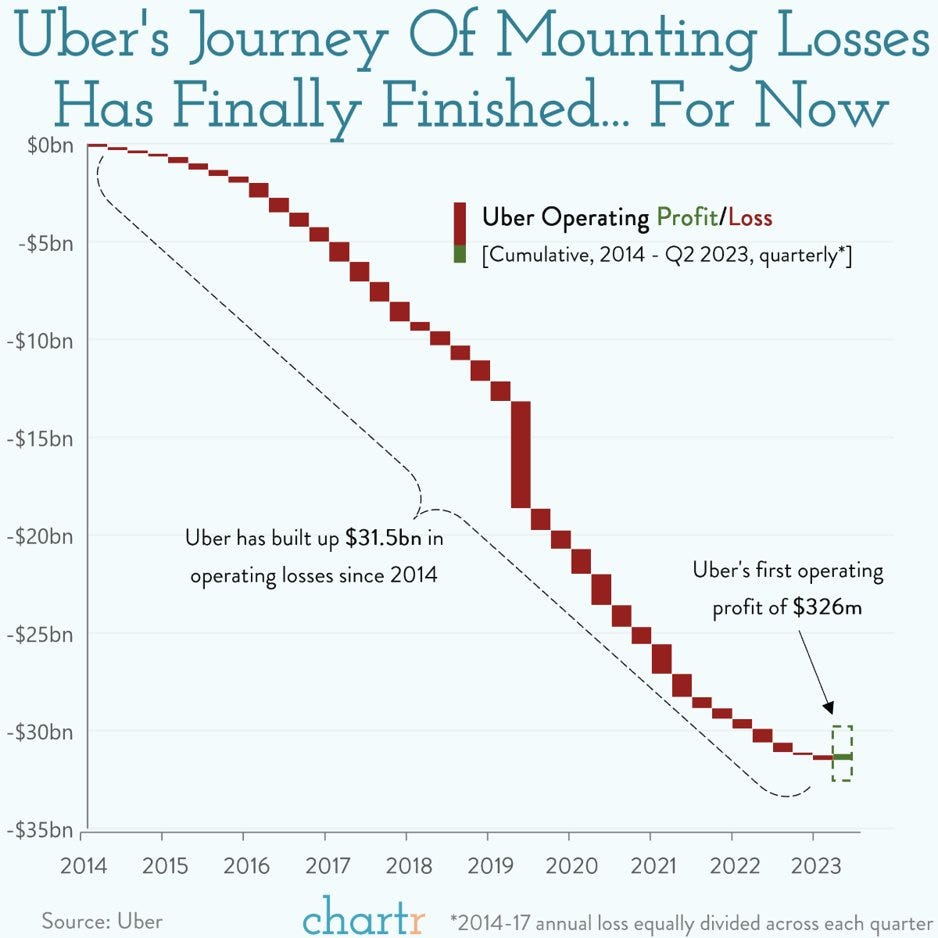The pre-standard phase
Or, why so many are excited about AI
This is a classic bit from From Kevin Kelly’s New Rules for the New Economy:
The pre-standard phase is the most exciting. This period is marked by tremendous innovation, high hopes, and grand ambition. “Aha!” ideas flow readily. Since there are no experts, everyone can compete, and it seems as if everyone does. Easy entry into the field draws myriad players. For instance, when telephone networks began, there were few standards and many contenders. In 1899, there were 2,000 local telephone firms in the American telephone network, many of them running with their own standards of transmission. In a similar vein, in the 1890s, electricity came in a variety of voltages and frequencies. Each local power plant chose one of many competing standards for electrical power. Transportation networks, ditto. As late in the railroad era as 1880, thousands of railway companies did not share a universal gauge.
It’s exactly what we’re living through today with AI.
Google understood the importance of the pre-standard phase and worked to establish dominance as the standard of search in an absurdly quick time frame. It’s a modern version of what occurred previously with the above telephone example illustrated by Kevin. Similar story with Amazon and e-commerce.
Twitter understood this too and positioned themselves as the web-based text/SMS platform of choice. They’re nearly unchallenged at least with micro content (I am bearish Facebook’s clone for reasons I outline here). Twitter won the pre-standard phase, and despite what missteps have been made (a big one I see is not playing nicely with Substack, as Mike Solana outlines) it’s not been enough to unseat them. Bonus content: we had Mike on our most recent podcast episode, worth a watch here, Mike is wicked smart.
Uber poured a seemingly ridiculous amount of money into becoming the standard for ridesharing. I believe this bet has paid off, and Lyft will never be a real challenger.

Netflix saw this opportunity early with streaming. They tried to shore up that market, but now have challenges with maintaining content quality and closed ecosystem vs something like YouTube (which I believe will always be more important). This illustrates an ex you could try to be the standard, but the market was never going to be owned by one player very long and the biggest winner could even be something that looks very different.
If you’re in an industry or working on a technology that is still pre-standard thanks to recent innovations or shifts in preference, you most likely can’t dream big enough. That is, if you want to be tomorrow’s standard.
Consideration: not all new innovations in the pre-standard phase ever even become ‘standard’ and simply pass like a wave breaking on the beach. This is to be expected. Think things like laserdisc players or a 3D printer in everyone’s home. If seeing the future with precision was so easy, everyone would be a billionaire. Of course, some things (like mobile) should have been more obvious than others. The use cases must be clear, and not just to tiny cults where the adoption barrier remains high or user centricity remains low.




I agree with the concept, and conclusion about AI, but the parallels here aren't quite
accurate. Google didn't exist during the pre-standard phase of search, it has already been done by Alta Vista, Yahoo, etc. Google launched a better product into a mature market.
And the telephone lacked a pre-standard phase since it was dominated by a patent which guaranteed a monopoly for the Bell Telephone company.
Uber is a good example, although I am not sure their victory is worth what they paid. All mobile-native companies thrived in the pre-standard days of mobile, just like Yahoo thrived in the pre-standard days of the web.